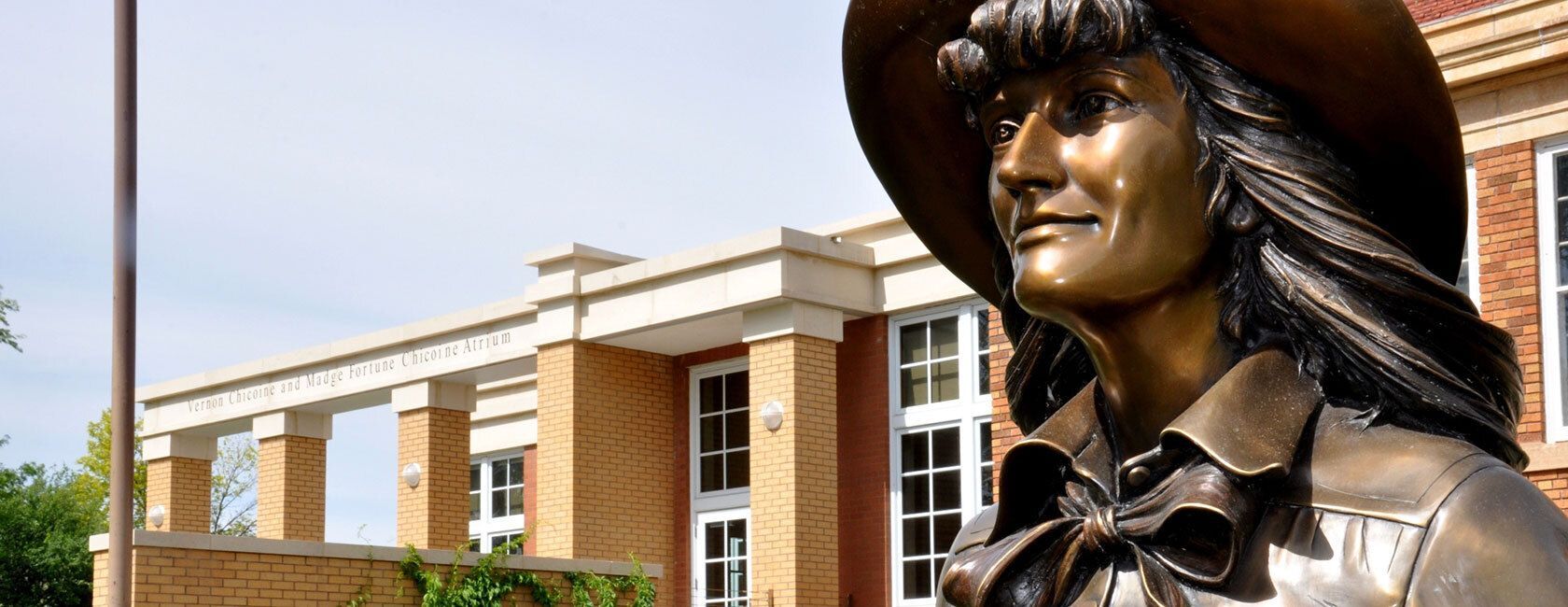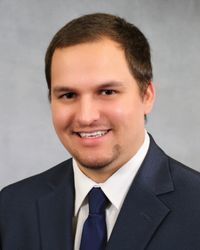
Broc Anderson is an enrolled member of the Oglala Sioux Tribe and the Director of Historic Sites for the Nebraska State Historical Society. He graduated from Chadron State College with his bachelors in Social Science Education in 2017, and graduated with his masters in History at the University of Nebraska at Kearney in 2022. Like Sandoz, Broc shares the same passion and interests for northwest Nebraska and High Plains. More specifically with his research, Broc builds upon Sandoz's work by exploring the social, economic, and political relationships between the Lakota from Pine Ridge and non-natives in northwest Nebraska during the late nineteenth century.
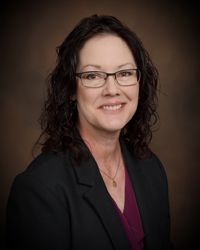
Holly Boomer, Ph. D., has served on the Mari Sandoz Board of Directors from 1992-1999 and 2004-present. Holly is currently Director of Developmental Education at Siŋté Glešká University in Mission, South Dakota. She was most recently on the English faculty at Western Nebraska Community College in Scottsbluff, NE and prior to that she was the Vice President of Instruction at Colorado Northwestern Community College in Rangely, CO, and in that role was the ALO to the Higher Learning Commission, the regional accrediting body. She has served in the following positions: Dean of Academic Support Programs at Navarro College in Corsicana, TX; General Education Chair and System Director of the Center for Student Achievement at National American University, a proprietary institution, and began her tenure with NAU as the Academic Dean at the Rapid City, SD campus; Assistant Professor of Humanities and American Indian Studies at Black Hills State University in Spearfish, SD; and finally Humanities and Communications Instructor at Oglala Lakota College for a total of eighteen years during two different periods and additionally chaired the Humanities and Social Science Department for five years. Her research interests include retired minority veterans' access to mental health services, and female veterans and the culture of fear. Her Specialties: Management and leadership experience in higher education administration and faculty professional development.
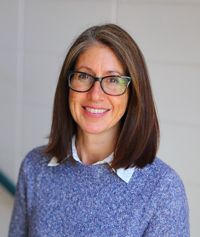
Dr. Leisl Carr-Childers Leisl Carr Childers is an associate professor of history at Colorado State University who specializes in environmental and public history in the American West. She is the author of multiple articles and chapter essays; her first book, The Size of the Risk: Histories of Multiple Use in the Great Basin (University of Oklahoma Press, 2015), won the Western Writers of America 2016 Spur Award for Contemporary Nonfiction. Her research has been featured on the podcast “Bundyville: Season 1,” PBS Frontline, Nevada Public Radio’s State of Nevada, the High Country News, and The Conversation. Her current projects include the Art of Ranching, a collaboration with CSU Extension that engages youth in intergenerational storytelling to do community history, a modern history of the USDA Forest Service from 1960 to present, and a history of the long Sagebrush Rebellion in the context of climate change. In addition, she is the co-editor with Renee Laegreid on the Sandoz Studies book series and with Michael Childers on the Environment and Region in the American West book series, both at the University of Nebraska Press.
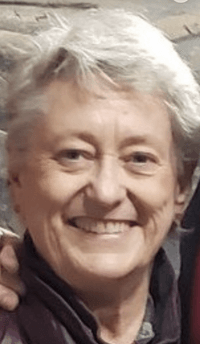
Christy Chamberlin has been involved with preserving the legacy of Mari Sandoz since she was a teenager. While she was attending Gordon, NE high school, three women created the Mari Sandoz Room above the Chamberlin Furniture Store. Those three women were Caroline Pifer, Mari Sandoz' sister, Sybil Malmberg Berndt and Christy's mother, LLoy Chamberlin. Their dedication to honoring an author helped Christy decide to pursue degrees in English and Journalism at the University of Nebraska. Following graduation Christy worked for a local newspaper and then did Public Relations for two hospitals. At the age of of 26 Christy turned to entrepreneurship and started several businesses, including six Daylight Donut shops. Her success in business led to an interest in investments, especially the stock market. She opened an office for Edward Jones Investments in Las Cruces, NM in 1987. For the next thirty years, she built her business as a Financial Advisor and became the number one producer for the firm in New Mexico. She attended the Managing Partner's Top Producer Conference ten years in a row and she served for six years on the Kitchen Cabinet of the firm's managing partner in St. Louis. Upon her retirement, Christy and her husband, Bob moved to the Black Hills of South Dakota, close to her home town. One of the first things she did in retirement was join the Mari Sandoz Heritage Society Board. She is honored to carry on the work that her mother started fifty years ago. She serves on the Executive Committee as Chair of the Finance & Awards committee.
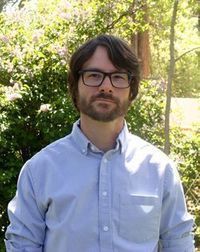
Dr. Steve Coughlin teaches creative writing at Western Colorado University in Gunnison, Colorado. He received his MFA in Creative Writing from the University of Idaho and his PhD in English from Ohio University. He has published two full-length collections of poetry, Another City (FutureCycle Press) and Deep Cuts (Finishing Line Press), and a chapbook, Driving at Midnight (Main Street Rag). Currently he is working on a collection of travel essays that document life and culture along America’s hundredth meridian.
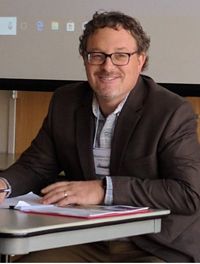
Dr. Matthew Evertson is a professor of literature at Western Colorado University in Gunnison, teaching, researching, and writing about the regional influences upon the literature of the Great Plains and the Intermountain West, with a special emphasis on the Environmental Humanities and Indigenous Studies. His earlier scholarship focused on American literary naturalism, but his interests have evolved into the ecocritical explorations of Western American writers, particularly those voices of the Great Plains and the Rockies. His current writing projects include an exploration of the ecological themes surrounding “home” and “homes,” especially in the works of a trio of prominent Nebraska writers: Willa Cather, Mari Sandoz and Wright Morris. In his spare time he attempts to write long and short fiction, mostly set in the contemporary West.
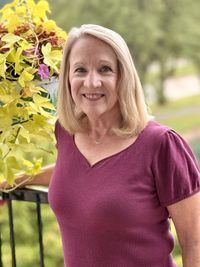
Peg Gilbert is a retired Registered Nurse and a docent at Joslyn Castle in Omaha, sharing the history of the home and Joslyn family. Her Great grandfather was Peter Sandoz. His father, Paul was a brother to Ami Sandoz, (“Old Jules” father) and was one of the uncles he recruited to live in the sandhills. You will find her great grandfather Peter mentioned several times in the book Old Jules and especially connected to the rattlesnake bite episode. Her father was an identical twin and was born in Rushville as her grandmother Wilma was living on the Peter Sandoz ranch near the Jules Sandoz ranch. Her father and his brother spent many summers working on the ranch under the care of Peter. When her father’s twin died, he left all his Sandoz memorabilia to Peg.
In 2015, Peg and her husband attended the fifth international Sandoz reunion in Neuchatel, Switzerland to experience the Sandoz history prior to their immigration to the United States. Peg is a Nebraska Humanities speaker and has shared the Mari Sandoz story to over 600 Nebraskans to keep her memory and contribution to history alive.
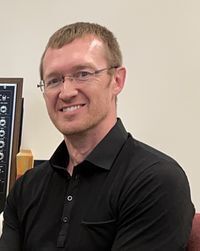
Sam Herley, Ph.D., is an assistant professor in the Department of History at Chadron State College. He was the curator for the South Dakota Oral History Center at the University of South Dakota from 2015 to 2024. He served as an instructor at USD for the Department of History, Native American Studies Program, and Honors Program starting in 2011, and he also has taught for The Indian University of North America at Crazy Horse Memorial. He earned his doctorate in history of the American West from the University of Nebraska-Lincoln in 2010 and is a graduate of Gettysburg College. His areas of interest include the American Civil War, the post-Civil War West, the presidency of Harry Truman, and historical relationships between the United States and Native American tribal nations.
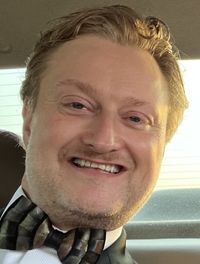
Daniel Hobbs was born and raised in Gordon, Nebraska, and has known about Mari Sandoz for as long as he can remember. His maternal grandmother, Lloy Chamberlin, was a tireless advocate for Mari’s work and a great cheerleader for the Sandhills in general. Mr. Hobbs studied piano performance and pedagogy and French language and literature at Illinois Wesleyan University, then obtained his master's degree at the Manhattan School of Music in New York, New York, where he continues to reside. Mr. Hobbs is a dedicated reader and avid supporter of the arts. It is a privilege for him to serve on the board of the Mari Sandoz Society, to learn more about and encourage discovery of this fine, underappreciated author; to engage with other Sandoz aficionados; and to strengthen a connection to Western Nebraska, an astonishing corner of the world familiar to so few but never described better than by Mari Sandoz.
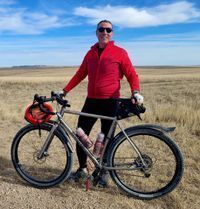
Kurt E. Kinbacher retires from the History Department at Chadron State College in May 2026. He has served on the Board since 2013 and chairs the Pilster Lecture Committee since. He completed his PhD at the University of Nebraska-Lincoln. He is author of Urban Villages and Local Identities: Germans from Russia, Omaha Indians, and Vietnamese in Lincoln Nebraska; co-editor of Reconfigurations of Native North America; and author of several articles, book chapters, and historical markers that focus on identity construction, human migrations, and region. He is also a board member of the Northwest Nebraska Trails Association and spends a lot of time wandering around Sandoz Country.
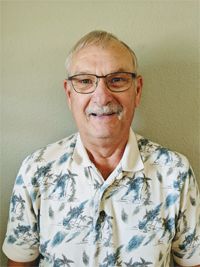
Dan Kusek is a native if Alliance and is a retired engineer on the BNSF railway. He is a longtime fan of Mari Sandoz and her writing. Dan presently serves as the chairman of the Sandoz Center's center committee. He is also a member of the Finance and Awards Committee and is Vice President of the Society. With no full time director at the Center, Dan is also overseeing the Center and staff. He also checks the Sandoz gravesite north of Ellsworth for the Society.
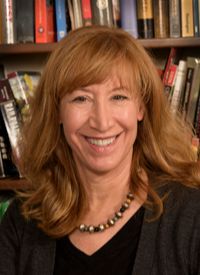
Renée M. Laegreid is a Professor of History at the University of Wyoming who specializes in the US West. Her area of specialty is women and gender in the 20th century West with publications that include Riding Pretty: Rodeo Royalty in the American West and a co-edited volume of essays Women on the North American Plains (2012 Nebraska Book Award Winner). Laegreid is co-editor with Leisl Carr-Childers on the Sandoz Studies book series. She is currently working on two book-length projects: a history of women on the Great Plains, and a comparative history of the idea of the cowboy between the US and Italy.
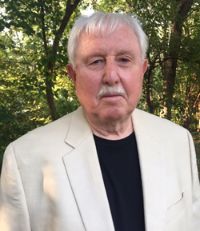
Dan McGlynn has served on the Sandoz Board since about 1990. He grew up with a love of the Old West, its history, its people, their triumphs and struggles. Dan's maternal great grandparents homesteaded near Verdigre, Nebraska during the time Old Jules was living there. Although Dan has a B.A. in English from the University of Nebraska Omaha, he's been an amateur historian for most of his life. Dan is also VP and Co-founder of Husker Fans Salute The Troops, a non-profit organization that honors veterans, troopers, wounded warriors and Gold Star Families. When he was younger, he toured with many recording artists when he was a professional musician in Los Angeles. And after his musical career, Dan worked for decades in sales and sales management in Omaha. For the past 16 years, Dan has written weekly columns for HuskerMax.com about the world of Husker football. Dan lives in Omaha with Linda, his bride of 49 years. They have two children and four grandchildren whom they spoil at every opportunity
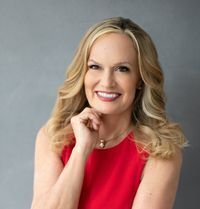
Genon Murray is a proud Nebraska native who grew up immersed in the settlement stories of her family, the heritage of her community, and the rich literary tradition of Nebraska authors such as Mari Sandoz. This early appreciation for history and storytelling has shaped both her creative work and her career. She holds a BS in Adult Education and Sports Medicine, an MA in Mental Health Counseling, and an MFA in Creative Writing. Her professional path reflects a passion for connecting people through stories—whether in business, education, health, or the arts, and her counseling background enriches her ability to understand diverse perspectives, coach teams, and foster collaboration. Over the past 30 years, Genon has worked as a writer and producer, creating original concepts, brand stories, digital marketing content, and experiential media for clients including Universal, Disney, Kennedy Space Center, Meliá International, Arizona State Parks, Lockheed Martin, IBM, and Herschend Entertainment, among others. For the past 18 years, she has also served as Course Director in the Digital Marketing program at Full Sail University, teaching and mentoring students at both the undergraduate and graduate levels. Genon brings to board service a deep respect for Nebraska’s past, a love of storytelling, and extensive experience in leadership and communication.
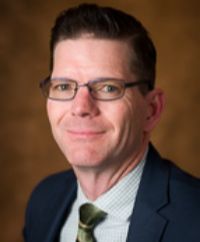
David Nesheim received his doctorate in history from the University of Nebraska-Lincoln under the direction of John Wunder in 2009 and lives in Chadron, Nebraska. His specialty is Environmental History with an emphasis on the Great Plains and Native Americans and he emphasizes plants and animals as important characters in our collective past. He has published articles in Environmental History and Great Plains Quarterly on buffalo husbandry in the twentieth century.
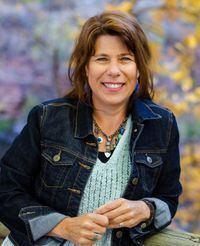
Laura Pritchett is the author of nine books. She began her writing journey with the short story collection Hell’s Bottom, Colorado, which won the PEN USA Award for Fiction and the Milkweed National Fiction Prize. This was followed by the novels Sky Bridge, Stars Go Blue, Red Lightning, and The Blue Hour, which garnered several other awards. Her first play, Dirt: A Terra Nova Expedition, was performed in Fort Collins, Colorado, in the Spring of 2018 at Bas Bleu Theatre. Pritchett is also the editor of three anthologies: Pulse of the River, Home Land, and Going Green: True Tales from Gleaners, Scavengers, and Dumpster Divers. She also has two nonfiction books: Great Colorado Bear Stories and Making Friends with Death. Her work has appeared in The New York Times, O Magazine, Salon, Terrain, Creative Nonfiction, High Country News, The Millions, The Normal School, The Pinch, Publisher’s Weekly, The Sun, Orion, and many others. Pritchett built and directs the MFA in Nature Writing at Western Colorado University. She is a columnist for the Colorado Sun. She holds a PhD from Purdue University. She is also known for her environmental stewardship, particularly in regard to land preservation and river health.
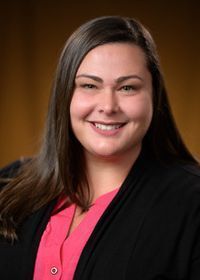
Dr. Gabriella Pruitt Santos is an assistant professor of political science at Chadron State College. She received her Ph.D. in global studies from the University of Massachusetts Lowell and degrees from American University and California State University San Marcos. Gabriella is a strong proponent of incorporating local culture and history into teaching global concepts in political science, integrating passages from Mari Sandoz’s writings and class trips to the Mari Sandoz High Plains Heritage Center into lessons. As a researcher, Gabriella uses archival and qualitative methods to analyze the role of digital technology in political communication and culture. She is currently working on projects that examine the use of new media in reconciliation processes between Indigenous and settler communities and political voice of marginalized populations in rural communities.
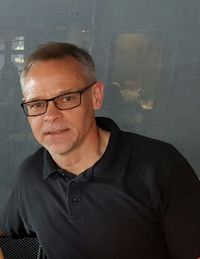
Brian Rockey was named Director of the Nebraska Lottery and Charitable Gaming Division in 2016. He has been associated with the Nebraska Lottery in one capacity or another since its founding in 1993. Prior to that, he worked for two Nebraska governors and a state senator. Rockey is a 1983 graduate of Creighton University and holds master’s degrees from the University of Nebraska-Lincoln and University of Nebraska at Omaha. A native of Alliance, Nebraska, Rockey has been involved with the Mari Sandoz Heritage Society since the mid-1980’s. His favorite Sandoz book is Capital City.
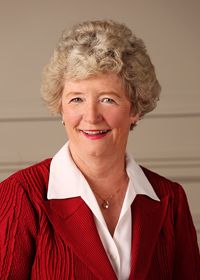
Lynn Gottschalk Roper was born and raised in Rushville, NE where her parents published the Sheridan County Star. Lynn graduated from the University of Nebraska with a Bachelor of Arts degree and a political science, history and journalism major. Lynn joined Merrill Lynch in 1976 as a financial advisor when they opened the Lincoln office and also served as Resident Manager of the office for 26 years. She was recognized in her firm and industry for her career achievements and provided leadership on a national basis. Lynn retired in 2019 from her 42 year career with Merrill Lynch. Lynn was recognized by the University of Nebraska as it’s Distinguished Alumni in 2018 and selected to participate in its Masters program in 2019. Lynn’s commitment to community service includes serving in leadership roles on numerous boards including several statewide organizations. She has served as chair of the Nebraska Environmental Trust, Madonna Rehabilitation Hospital, Lincoln Lancaster Commission on Women, UNL Journalism capital campaign. She has served on the Board of Directors for the Woods Charitable Fund and the University of Nebraska Foundation. She currently serves as president for the Center for People in Need, as board member of the Madonna Rehabilitation Hospital and board member and treasurer of the Nebraska Community Foundation. Lynn joined the Mari Sandoz Heritage Society Board in 1999, served as treasurer and was President from 2006 to 2023. She is a strong advocate of the Sandhills and the heritage of all who have been fortunate to visit and to live there.
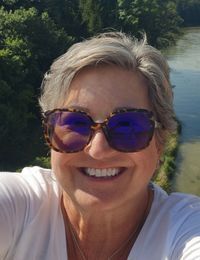
Shannon D. Smith joined the Mari Sandoz Heritage Society board in 2003 and became president in 2023. In October 2025 she assumed the newly created Interim Executive Director position. She is formerly the Executive Director and CEO of the Wyoming Humanities Council and has worked in higher education for two decades including teaching history and humanities for seven years at Oglala Lakota College on the Pine Ridge Indian Reservation. She is a historian and author of several works on women of the American West including Give Me Eighty Men: Women and the Myth of the Fetterman Fight, a 2009 book award winner from the Wyoming State Historical Society. She has written several articles and book chapters featuring Mari Sandoz and aspires to write a biography of Mari's amazing life. Her most recent work focuses on Mari’s research collection and comparing Sandoz’s work and life to those of her contemporary authors. Shannon was the Executive Secretary of the Mari Sandoz Heritage Society from 2001-2003 and has served on the board since then. She has served on several regional cultural boards including the Nebraska State Historical Society, the Harry Jackson Institute (Cody, WY), the Willow Tree Festival (Gordon, NE), and the American Heritage Center at the University of Wyoming. She now lives in her hometown, Gordon, Nebraska, where she has a cultural consulting business, Smithstorian Consulting, LLC, and is working on several Native American culture and heritage preservation projects.
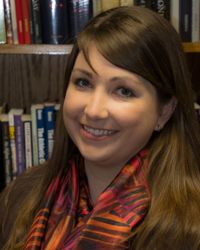
Heather Stauffer is from Nebraska and began her career in publishing at the University of Nebraska Press. Now at Syracuse University Press as editor-in-chief, she is enjoying gaining a new understanding of home place from outside the state. She completed MA degrees in History and Creative Writing at the University of Nebraska-Lincoln, with research focusing on the Great Plains, and co-authored Kearney: The Midway City with Mark Ellis (Arcadia, 2006).
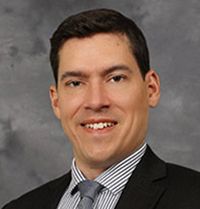
Chris Steinke’s work focuses on Plains Indian history in the eighteenth and early nineteenth centuries. He is particularly interested in indigenous communication and transportation networks and how they linked Plains groups to one another and to colonial outposts. His current book manuscript, Rights of Passage: Indigenous Travelers on the Missouri River, reconstructs the history of indigenous mobility on the Missouri River, a vast transcontinental corridor of Native movement and travel. His research in Pawnee and Arikara history has appeared in the William and Mary Quarterly and Great Plains Quarterly.
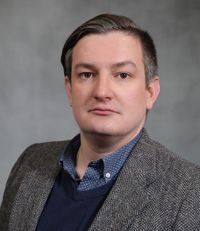
Dr. Nathan Tye is associate professor of Nebraska and American West History at the University of Nebraska – Kearney (UNK). Born and raised in Nebraska, Tye received his PhD from the University of Illinois Urbana-Champaign in 2019. A labor historian by training, Tye studies transient agricultural laborers, better known as hobos, in the Progressive Era, and has published studies of transient labor in Nebraska History and the Annals of Iowa. He is also an avid literary historian, with work appearing in The Willa Cather Review and The Walt Whitman Quarterly Review, among other venues. A dedicated local and community historian, Tye is a frequent speaker on Nebraska history, including an appearance on NBC’s Who Do You Think You Are? He serves on the boards of several community museums and cultural organizations including the G.W. Frank Museum of History and Culture and Buffalo County Historical Society in Kearney and the Japanese Hall at the Legacy of the Plains Museum in Gering.

